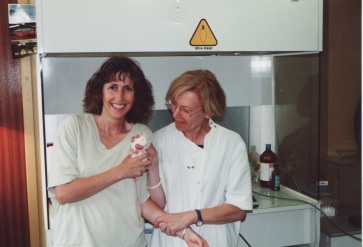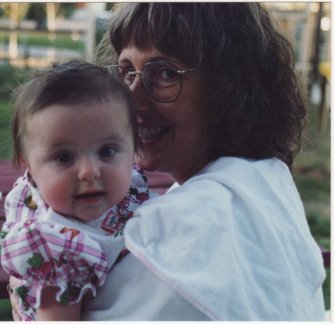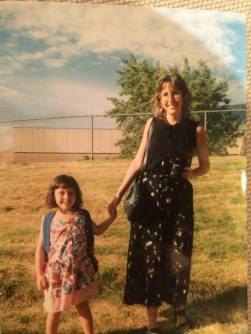From time to time when I was a little girl, grown-ups would ask me “what do you want to be when you grow up?” I always said I didn’t know, but that wasn’t true. I knew I wanted to be a scientist when I grew up. I loved everything about the natural world, and devoured books and encyclopedias about topics in evolution (horses and dinosaurs!), geology, astronomy, biology, and later, psychology. I imagined a romanticized world of white-coated discovery.
I said I didn’t know what I wanted to be because everyone in the 1960’s knew that little girls could not grow up to be scientists. As my 7th grade science teacher said- “everyone knows boys are smarter in science than girls”. But fortunately for me, things changed in the 1970’s and 1980’s, and it became possible for girls like me to grow up to be scientists.
I first became interested in psychology as a teenager (my mother had a subscription to Psychology Today). When I went to college at the University of Washington in Seattle, I assumed I would go into Clinical Psychology. But while taking classes in Physiological Psychology, I fell in love with the brain. Physiological Psychology concerns how the nervous system and the rest of the body collaborate to regulate bodily functions such as digestion and blood pressure, and how what’s happening in the body influences brain functions including thinking and behavior. The goals are to understand the mechanisms of these interactions and how they enable us to maintain health, and respond to challenges, both mental and physical. It seemed to me that this was something I could spend my life studying, and stay passionate about. And I have.
My life as a scientist has been exciting and emotionally rewarding. I received my Ph.D. in Psychology from UCLA, where I studied gut and liver interactions with the brain, and received fantastic training in anatomy with Catia Sternini and Nick Brecha. I followed up with post-doctoral adventures in comparative anatomy of the autonomic nervous system in the lab of Tom Finger. I landed in my current field, Psychoneuroimmunology, as a result of my collaboration with Linda Watkins and Steve Maier at CU Boulder, in which we showed that the vagus nerve serves as a major pathway by which the immune system and brain communicate. I still love the vagus nerve.
Nerve fibers and paraganglion cells in the vagus nerve
More recently I trained with Siggy Bonnevie in Restorative Yoga, and with Tussi Kluge and Leslie Blackhall in Mindfulness-Based Stress Reduction. Over the years I have continued to study what I think of as the biological bases for mind-body interactions, and talk about my work all over the United States and in Europe (see the Curriculum Vitae tab for details). I have had the opportunity to teach thousands of students, on topics including Psychology of Perception, Neuroscience, Mind-Body Interactions, Stress, Emotions, and the Brain, and Developmental Psychology.
With Rose-Marie Bluthe at INSERM in Bordeaux, France, 1995
In recent years, I’ve noticed a disconnect between the amazing understanding of how the brain works and the implications of the bi-directional interactions of the mind/brain and body that basic scientists are revealing, and the awareness of these advances among practitioners and the public. There is clearly a need for dissemination of basic research findings. The challenge for this is that “translating” basic science accurately requires deep knowledge of physiology, immunology, neuroscience and behavior. For these reasons, I’m happy to have the opportunity now to speak to public/patient/practitioner groups on topics related to gut problems, stress and resilience, mood, inflammation, healthy aging, and mindful eating.
Daughters and sisters over the years






Hello Lisa,
I attended your recent seminar in Madison and spoke to you briefly. I know
you talk to many but you may remember I shared with you that I have
Barrett’s. Since then I learned about two books I think you’d be
interested to know about. One is *Trust Your Gut* by Gregory Plotnikoff,
MD & Mark Weinberg, PhD, published 2013 and the other is *Gut, The Inside
Story of Our Body’s Most Underrated Organ* by Giulia Enders, published
2015. They both seem like books after your own heart. Thanks for sharing
your passion and an interesting day of learning.
JoAnn
ps. I tried sending this to your email address but it failed
LikeLike
Love these! Thanks Jo Anne!
LikeLike